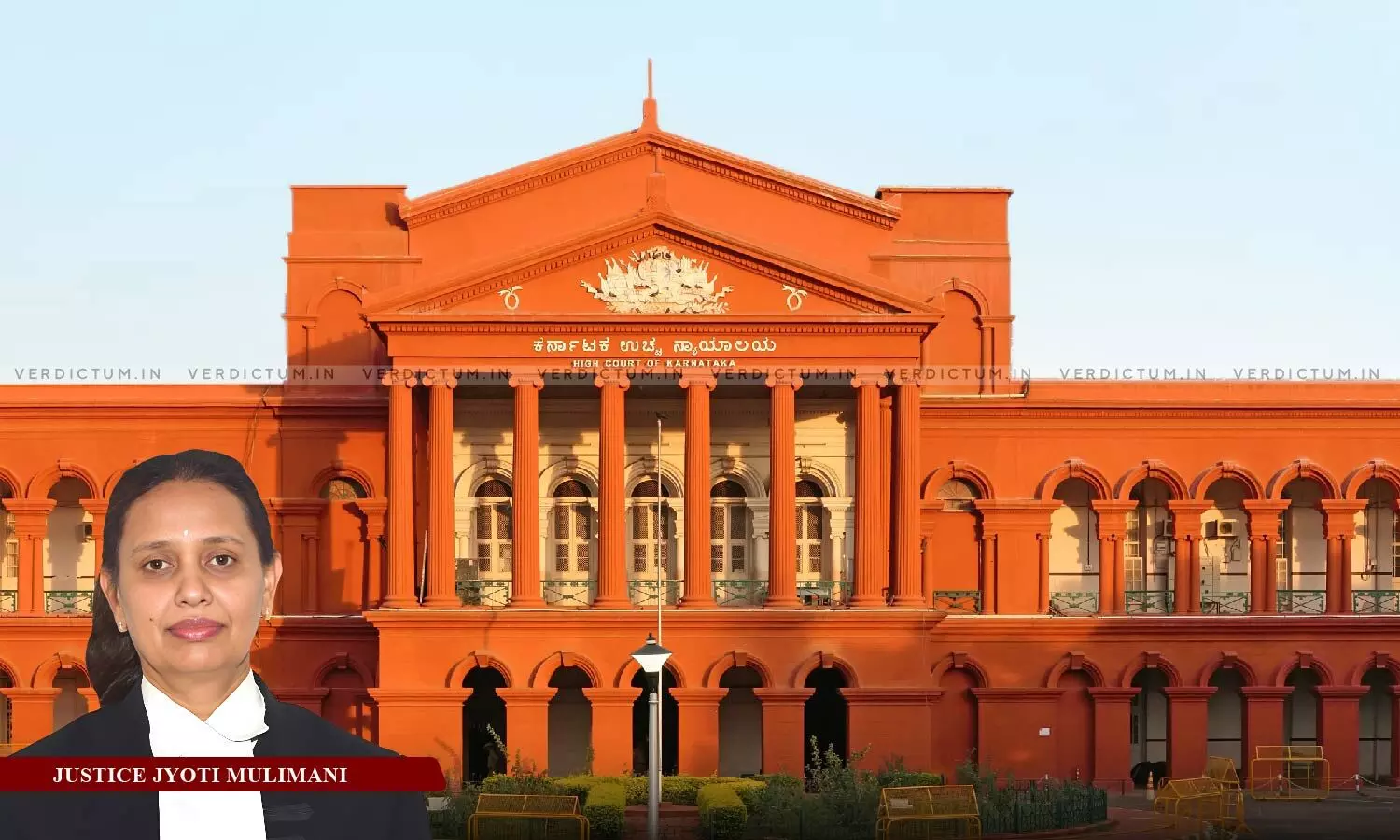
Power Of Attorney Deed Which Empowers Its Holder To Sell Immovable Property Requires Compulsory Registration: Karnataka HC
 |
|The Karnataka High Court held that if a power of attorney deed gives a right to the attorney holder to sell the immovable property, then it would be a document creating an interest in the property which would require compulsory registration.
The Court was deciding a second appeal preferred against the District and Sessions Judge, Bangalore in a property related dispute.
A Single Bench of Justice Jyoti Mulimani observed, “An attempt is made on behalf of the plaintiffs to contend that the second plaintiff has sold the property as a General Power of Attorney Holder and not as a title holder. It is argued that the Power of attorney is not compulsorily registrable. The submission is noted with care. Suffice it to note that a deed of power of attorney is not one of the instruments specified under Section 17 of the Registration Act compulsorily registrable. However, if a power has been created empowering the attorney to sell the property i.e., if a document that gives a right to the attorney holder to sell the immovable property, then it would be a document creating an interest in immovable property, which would require compulsory registration.”
The Bench said that an agreement of sale is not a document of transfer, nor because of execution of a power of attorney, can the right, title or interest of an immovable property be transferred.
Senior Advocate S. Basavaraju represented the appellants while Advocate R. Vijayakumar represented the respondents.
Factual Background -
The defendants were the original owners of the suit schedule property and they sold the same to the second plaintiff in 1991. Due to the Fragmentation Act, they executed an affidavit in favour of the second plaintiff regarding receipt of consideration and transfer of their vested right with possession regarding the property. The affidavit cum sale of the scheduled land was duly sworn before the Notary Advocate who identified the signatures of defendants and the execution of the affidavit and transaction was entered in favour of the second plaintiff.
The defendants received the full consideration of Rs. 20,000/- and gave an undertaking that at no point of time, the property will be sold or transferred to any third parties. They also executed an irrevocable General Power of Attorney and as such the plaintiff continued her possession and paid requisite taxes. Thereafter, the second plaintiff sold the property to the first plaintiff and when he started to put up construction on the same, defendants obstructed it by claiming to be the owners of the property. The Trial Court decreed the suit and aggrieved by it, the defendants filed an appeal before the First Appellate Court which dismissed the same. Hence, they filed a second appeal.
The High Court in the above context of the case noted, “In this background, what is required to be considered is whether the sale of immovable property could be made by way of a declaration of facts, and by General Power of Attorney. … the declaration of facts/ statement of facts (affidavit) and General Power of Attorney do not convey title. They are inadmissible in evidence.”
The Court further noted that where there is a competition between two registered documents (relating to the same property) both of which are registered, the question of priority between them is to be determined with reference to the provisions of Section 47 of the Registration Act and if there are successive transfers of the same property, the later transfer is subject to the prior transfer.
“The first plaintiff purchased the property already sold, he cannot question the sale deed to be void and hence to have a mileage on the situation. Furthermore, there is no prayer regarding the cancellation of the sale deeds dated:26.04.2004. It is pivotal to note that Section 48 of the Transfer of Property Act ordains to accept supremacy on the former sale deed in all the terms of the latter. The transferor cannot prejudice the rights of the transferee by any subsequent dealing with the property. Taking note of the settled proposition of law, the successive transfer of the same property i.e., transfer by the second plaintiff in favor of the first plaintiff is subject to the prior transfer that was made in favor of defendants 4, 5 and 6”, it said.
The Court, therefore, concluded that both courts were not right in accepting the plaintiff’s contention as they overlooked the settled principles and erroneously went ahead and decreed the suit.
Accordingly, the High Court allowed the regular second appeal and set aside the impugned judgment and decree.
Cause Title- Channegowda & Anr. v. N.S. Vishwanath & Ors. (Neutral Citation: 2023:KHC:44651)